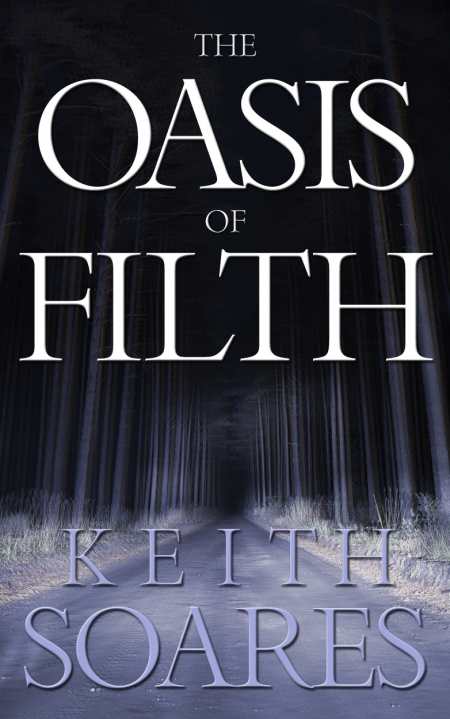The Oasis of Filth
Otherworldly elements grounded in reality bring an eerie atmosphere to this dystopian medical thriller.
With The Oasis of Filth, debut novelist Keith Soares has crafted a terror-filled tale of illness, outbreak, and hysteria. Told from the perspective of a middle-aged family doctor from Maryland, the dramatic tension rises through a plot that combines a fight for mankind and a budding relationship between the doctor and a strong-willed woman named Rosa.
Leprosy is at first blamed for mysterious symptoms in the doctor’s young patient, but time proves this is not the only malady facing the child and, indeed, others across the country. As the doctor confronts his fears and second-guesses his diagnosis, news spreads that others around the world are inflicted with a mysterious and ferocious disease. Panic and fear set in. Victims of the disease become violent and deformed, yet the narration clarifies they “weren’t some sort of undead monster, they had no magical powers, and you can kill one as easy as you kill anybody else.”
The infected zombie-like creatures take over civilization and, as a result, cities barricade their grounds for protection from the outside world. The government plays a role in managing the interior cities, insisting that, as the narrator says, “Only by completely sterilizing our environment can we hope to one day overcome the epidemic.” Those that do not comply with government orders are removed for the general well-being and safety of law-abiding citizens. The result is that mankind lives in fear of the infected killers outside the safety zone, and of themselves.
While the book offers dramatic twists and turns, most early action takes place through summary rather than scene. It’s not until the fourth chapter that a moment unfolds where dialogue accompanies action and the story begins to feel more immediate. Scenes become common later in the novel as the struggle to save mankind heightens.
Soares doesn’t bog readers down with unnecessary description. The writing is direct, providing an immediacy that’s necessary to the plot. Even while Rosa and the doctor develop their bond, elaborate characterization is at a minimum. Rather, Soares suggests depth below the surface.
While the two friends clean up after a meal, Rosa wonders what life would be like without the fear and uncertainty of their reality. The doctor observes Rosa, noting “the dream meant something serious to her. It gave her hope. There was no way I was going to laugh at it and take that away from her.” In this scenario, the doctor’s silence speaks more about his character than a quick-witted reply in dialogue would. It’s these subtleties in characterization that make The Oasis of Filth work. The focus is on the plot, but the depth of characters is the guiding force.
The cover is eye-catching and subtle in its nod to the eerie story within. Readers who enjoy sci-fi and mystery may be particularly drawn to this novel.
Reviewed by
Lori A. May
Disclosure: This article is not an endorsement, but a review. The publisher of this book provided free copies of the book and paid a small fee to have their book reviewed by a professional reviewer. Foreword Reviews and Clarion Reviews make no guarantee that the publisher will receive a positive review. Foreword Magazine, Inc. is disclosing this in accordance with the Federal Trade Commission’s 16 CFR, Part 255.

